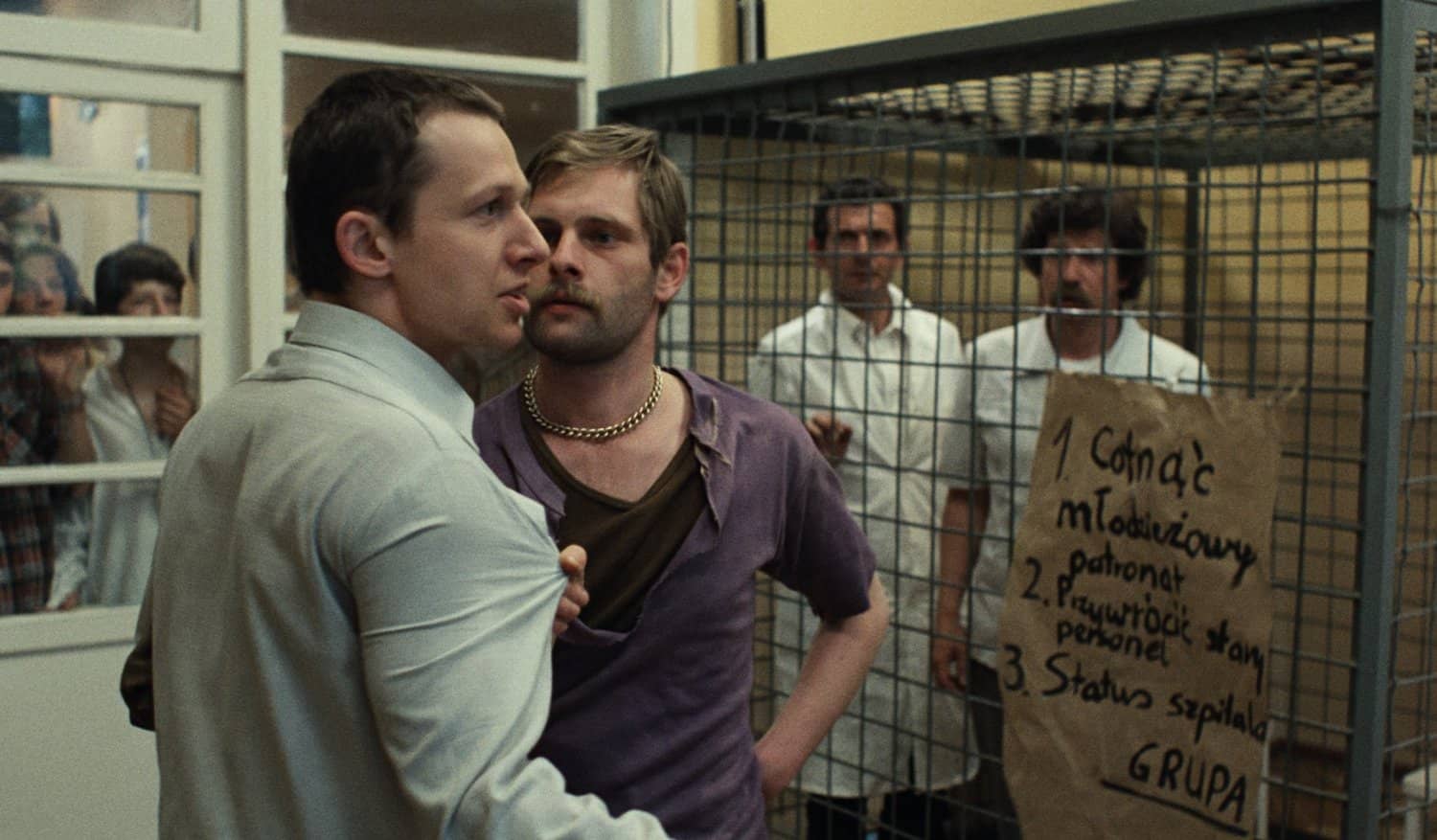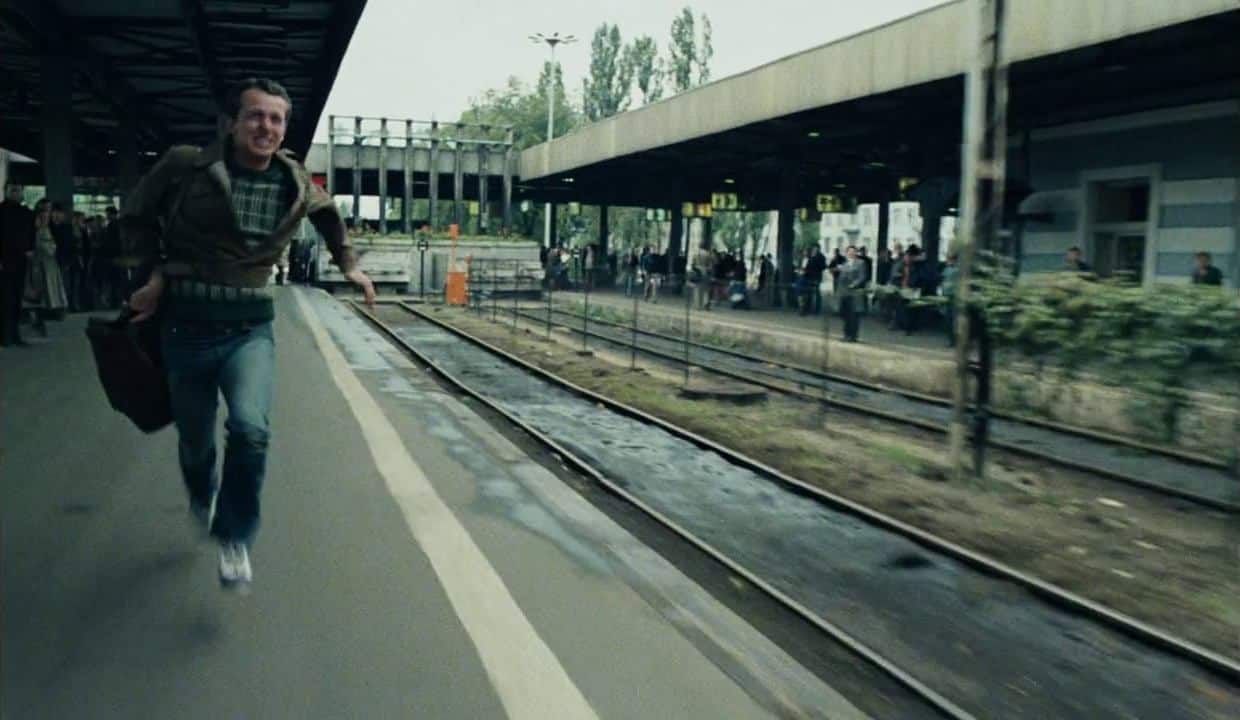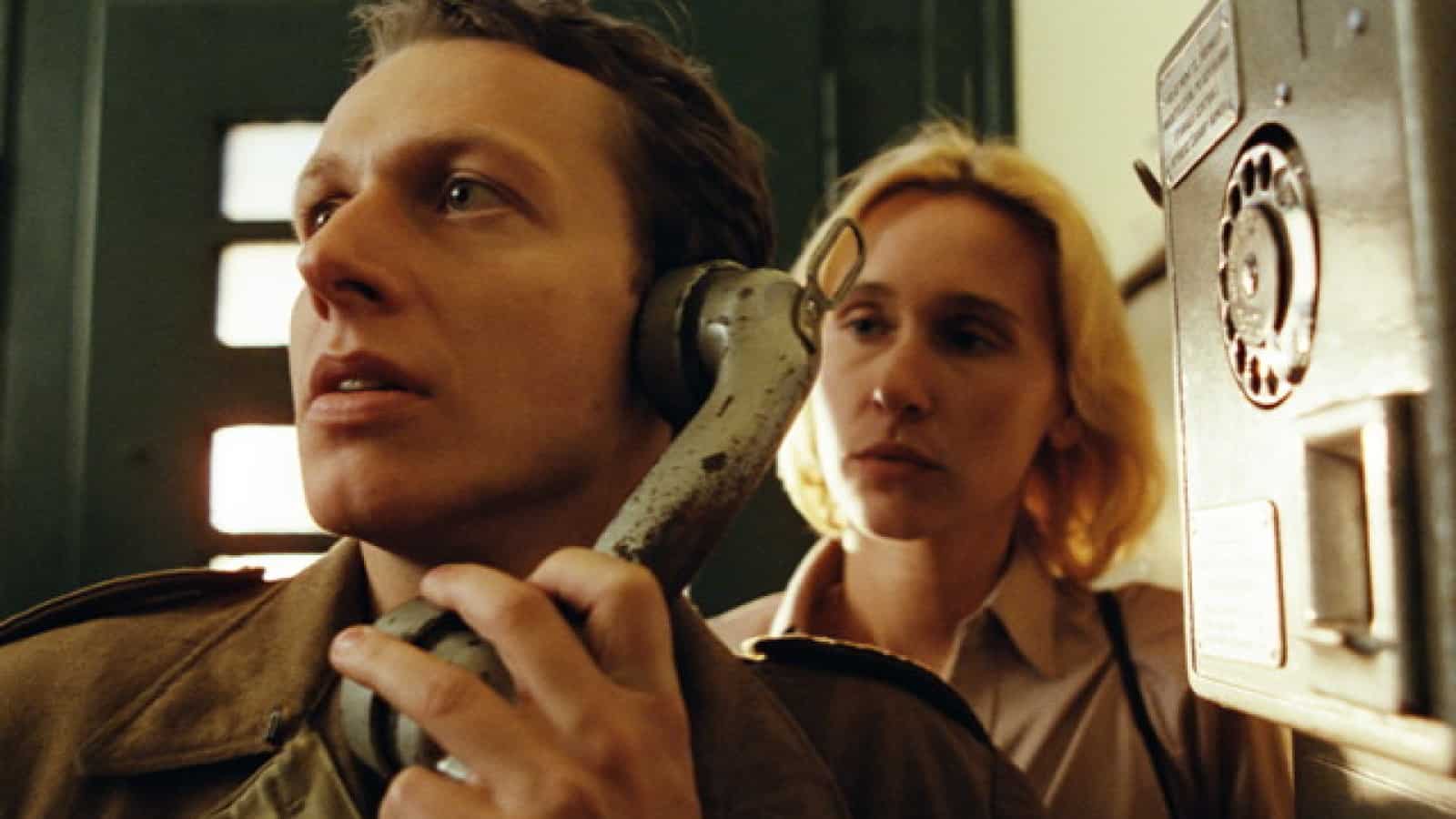‘Blind Chance’
Blind Chance could very well be the title of nearly every Krzysztof Kieslowski film. Throughout his relatively brief but nonetheless extraordinary career, a number of his films—some connected in a larger opus, some standalone titles—would explore the ways in which our lives intertwine with, or run parallel to, those around us: those we encounter, those we elude, those we know intimately, and those we have never met. Witek (Boguslaw Linda), the main character of Blind Chance, is like so many Kieslowski protagonists; he is, in fact, like so many of all of us. He is variably in the right or wrong place at the right or wrong time, and that contingency ultimately determines, one way or another, the precariously irreversible actions that dictate the direction of his life. How much of that, the film then questions, is mere chance?
The making and distribution of Blind Chance is itself a case of happenstantial conditions influencing an outcome. Production started in 1981 during a period free of censorship in Poland, but it was completed under newly instituted martial law. As a result, and due to the film’s politically contentious content, it was subsequently shelved for six years and only distributed in a censored form. What The Criterion Collection has recently released on Blu-ray is the original 1981 version of the film, with, according to an opening note, the censored fragments restored (there is still one scene where the excised material was not retrieved).
“Fragments” is a key term here. It obviously refers to the fact that entire scenes did not necessarily bear the brunt of the censorship; rather, there were mostly shots and snippets of dialogue omitted. But “fragments” is also a fitting term to describe the opening of Blind Chance, where Kieslowski presents a series of seemingly unrelated imagery: a close up of Witek screaming, a blood streaked hospital hallway, a young boy working on a math problem, another young boy bidding farewell to an off-screen friend. From there, as these assorted images extend into a series of similarly disconnected complete sequences, Kieslowski employs a perspectival strategy where the camera adopts a false point of view, which plays out to reveal not a character’s subjective viewpoint but simply an impersonal angle on the drama. It is not exactly clear why Kieslowski would choose to start the film in such a disjointed form, where our grounding for association is continually challenged, but as these opening sequences gradually make sense and their relevance becomes clearer, it does allude to the wider implications of the film. Kieslowski’s cinema, here and elsewhere, is frequently comprised of interrelated or unrelated incidents and accidents (to quote Paul Simon’s equally random “You Can Call Me Al”), which do not always yield the initial meaning we assume. His cinema is also a cinema of solace, though, in that nothing is meaningless, that whatever one’s actions, there is some impact left on someone, somewhere, in some way, even in a film like Blind Chance where the end isn’t always happy.
Each of the three stories presented in Blind Chance, what critic Tadeusz Sobolewski calls “hypothetical variants,” pick up as Witek has quit medical school and sets off to Warsaw following the death of his father. On his way to catch the train he, first, reaches it and begins a life of temporary political duty; second, misses the train, is arrested, and seeks a life of rebellious activism; and, third, misses the train, returns to school, builds a career, marries, and has a child.
As these variants play out, Witek struggles to find that which he can delve fully and passionately into, be it politically, professionally, or personally. He earnestly tows the line of the governmental agenda, but that aim is soon met by counter upheaval, with which he also sympathizes. Acting as something of a mediator, he attempts to please and equally comprehend both sides of the spectrum, but that proves to be an impossibility. Swaying first this way then that, he ultimately becomes evasive toward either side. This is even more the case in the third and final section of the film where, now primarily concerned with his job and his family, Witek declares his preference to keep entirely removed from sociopolitical contention. When he says at one point he is “all mixed up,” he isn’t joking. In each portion of the film, while his character essentially remains the same, and though those around him change, and as a result his actions differ, he is continually trying to reconcile his ideals and his wavering engagement.
Witek is told it is not just chance the way things work out, but echoing the primary theme of Blind Chance itself, he argues, “Sometimes I think it is.” He is acknowledging what we have seen but he is, of course, unaware of, and that is just how unstable his path has been. Kieslowski is concerned with commonplace yet perilously volatile actions like catching a train or missing a bus, and where those actions then take (or don’t take) a given character. The recurrent close-up of Witek’s outstretched hand reaching for the train visually hammers the point home, making clear that what lay ahead for him is reliant on mere seconds and inches, the smallest of details and events that can determine a life.
Before the formally exquisite The Double Life of Veronique (1991) and his “Three Colors Trilogy” (1993-94), Kieslowski worked in a more unromantic, understated fashion, a form evident in films such as The Scar (1981), A Short Film About Love, and A Short Film About Killing (both 1988), and lasting through his astonishing The Decalogue (1989-90). Though the settings for Blind Chance are generally old, cold, and worn and therefore likewise befit this approach, Kieslowski and cinematographer Krzysztof Pakulski shoot everything beautifully, giving even the simplistic natural images of Blind Chance a distinctive illustration. When often at the same time having some sort of foreground element obstructing a portion of the central focus, the entire composition becomes artfully and pleasingly designed.
That the Polish government saw Blind Chance, or at least portions of it, unfavorably should not be surprising. The is plenty of anti-Communist sentiment, and lines like, “screw your Party loyalty” most certainly did not sit well with the powers that be. Still, Sobolewski argues that Blind Chance is not a political film, and he proceeds to give his reasons (most of which sound frankly political). He is right, though, but for another reason. Blind Chance is not a political film because when everything is said and done, in all three takes on what might have been, there is no obvious message to get across or side to be argued. The focus is on the individual, not the opposing ideologies. “In keeping with Kieslowski’s earliest fiction films,” writes Dennis Lim in his essay on the film, “the failures of the system remain secondary to the human-scale dilemmas of the individuals trapped within it.” There is an unavoidable depiction of a politically charged time and place, and the resulting benefits and drawbacks derived from each position are shown and sometimes voiced outright. Certainly, too, there are some drastically negative elements concerning either side of the spectrum. But with all things considered, Kieslowski, the “pessimistic humanist,” as Lim calls the director, presents everything with an evenhanded balance—kidnapping and arson are no more the way to go than strict suppression and violent brutality.
As Sobolewski points out, Blind Chance is in its own way as autobiographical as Camera Buff, Kieslowski’s 1979 film about a man who discovers the power of his 8mm movie camera. Kieslowski and Witek possess an observational, ultimately disheartened detachment to their sociopolitical surroundings. While Kieslowski was generally content to remain politically ambiguous, Witek displays a fluidity of allegiance. Sobolewski says the film is also both Kieslowski’s “last will” and a “turning point,” two descriptions that seem to suggest divergent significance but do, in fact, point to how this film represents so much of what Kieslowski spent his entire career trying to convey, while also being the film that led to these recurrent thematic variations.
Subscribe to:
Post Comments (Atom)





No comments:
Post a Comment